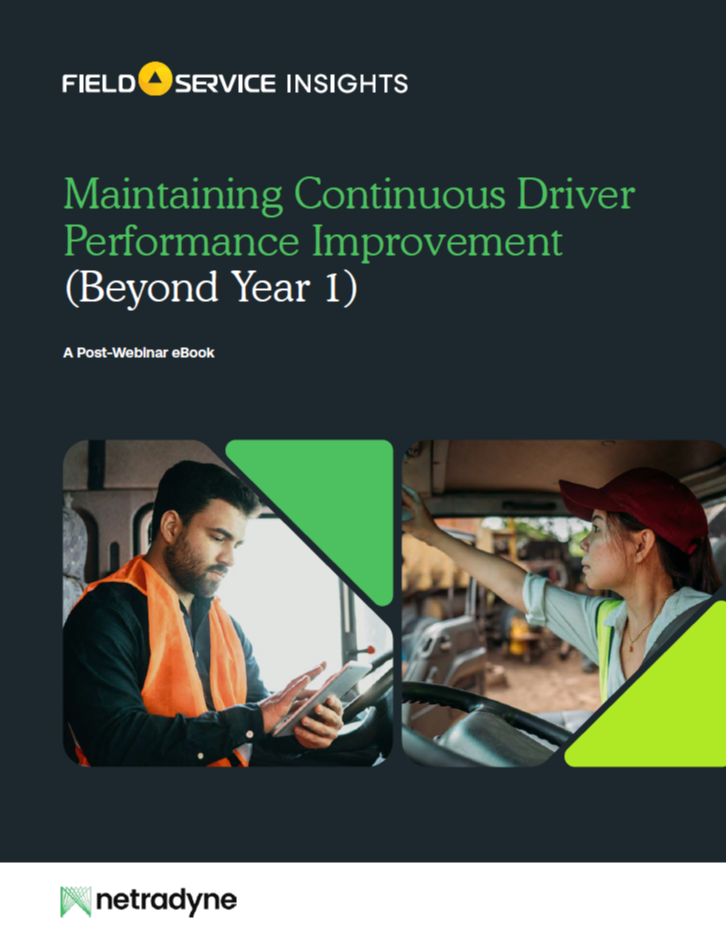Whitepaper & Video Center

Artificial Intelligence in Field Service: North America
This report, conducted by Field Service Next Insights, provides a critical look into how leading service organizations are implementing AI technologies and planning for their future transformation. Based on a survey of 100 field service leaders across telecommunications, manufacturing, healthcare, and other sectors, these findings reveal both the significant progress being made and the challenges that remain in AI deployment across our industry.

Field Service East 2025 After the Event Report
This report captures the essential insights, strategic discussions, and transformative ideas that emerged from our August gathering, where industry leaders explored the AI-powered service revolution and its practical applications across field service organizations. The conversations spanning AI integration, modern leadership approaches, customer experience optimization, and workforce development represent the forward-thinking perspectives that define our community’s commitment to excellence and innovation. These discussions directly address the most pressing challenges facing field service professionals today, from scaling AI implementations to building psychologically safe work environments.

Field Service Palm Springs 2025: After the Event Report
Whether you attended Field Service Palm Springs 2025 and want a recap, or missed the conference and need to catch up, this 'After the Event' report has you covered. This year’s event brought together service leaders for deep-dive discussions on predictive operations, AI integration, and workforce innovation. Key themes included building strong asset data foundations, leveraging AI tools like natural language processing for operational insights, and adopting creative talent strategies to meet evolving workforce demands. Sessions also explored data-driven inventory optimization and AI-powered forecasting to tackle global supply chain challenges. This report captures the major takeaways and actionable insights, offering a clear roadmap for service excellence in the AI era.

The Path to Industrial Servitization
This report explores how leading industrial service organizations across North America are embracing servitization to strengthen customer relationships, drive sustained revenue, and overcome operational challenges in the work they do for equipment-intensive sectors. Using qualitative and quantitative data, the report provides actionable insights for service leaders committed to realizing lasting value through customer-centric service innovation.

Maintaining Continuous Driver Performance Improvement (Beyond Year 1)
This post-webinar eBook is based on a webinar that explored continuous driver performance improvement within service fleets. At the webinar, leaders from Netradyne and Plastic Express shared how today’s advanced fleet safety solutions can gradually improve driver safety when combined with positive reinforcement, cue and reward cycles, and complete transparency between drivers and managers. Readers will learn how these concepts work in practice, what types of results they can generate, and how they can implement a more effective driver safety program at their organizations.

Transforming Customer Service Workflows with ServiceNow CSM
ServiceNow’s Customer Service Management (CSM) solution addresses critical challenges in service workflows by unifying disconnected communication channels and automating manual processes. The webinar and this report also share the story of Second Harvest Heartland, demonstrating how ServiceNow CSM helped the nonprofit organization streamline operations, reduce response times, and improve service for vulnerable populations.

The 2025 State of Field Service
This report explores how new technologies and evolving service models are improving outcomes in the field service sector. The data shows significant gains in areas like asset uptime and first-time fix rates, largely due to the adoption of technologies such as AI and remote diagnostics. Ultimately, the report demonstrates how these efforts will not only enhance revenue and reduce costs but also contribute to a more agile and customer-centric future for field service.

The State of AI in Field Service
This report explores the transformative impact of artificial intelligence (AI) on the field service industry, based on a survey of diverse field service leaders across various sectors. With 79% of organizations already at least somewhat satisfied with their existing AI implementations and 74% planning to increase their AI investments over the next 12 months, the industry is poised for significant changes over the next five years thanks to this groundbreaking technology. Field service organizations are already realizing significant gains in areas like customer satisfaction, productivity, and business growth thanks to AI.

Empowering Field Service Technicians with Mobile Fleet Technology
This eBook examines insights from a Lytx webinar on using real-time and AI-enabled telematics to enhance field service fleet safety and efficiency. Leaders from Waste Connections and Smart Care Solutions shared their experiences with video telematics and AI-powered safety systems. The discussion highlighted improvements in real-time resource allocation, safety outcomes, and operational efficiency. It also addressed strategies for increasing driver adoption of video telematics and explored future integrations for further safety and efficiency gains.

ARTIFICIAL INTELLIGENCE OF THINGS (AIOT) AND FIELD SERVICE TRANSFORMATION: A FRAMEWORK FOR SUCCESS
Artificial intelligence (AI) and the Internet of Things (IoT) are transforming field service by supporting more proactive and predictive modes of service. Based on a 2024 webinar by Field Service Insights and Cumulocity, this report explores how AI and IoT technologies empower companies to enhance user experiences through real-time data collection and analysis, AI-powered tools, and smart troubleshooting. By leveraging connected devices and detailed customer insights, businesses can minimize downtime and simplify issue resolution, often without requiring direct customer involvement.

Asset Management Simplified: Boosting Profitability in Field Service Operations
This eBook is based on a December 2024 webinar featuring leaders from Simpro and Henny Penny, moderated by Field Service Insights. The eBook outlines key strategies discussed during the webinar for optimizing asset management systems to enhance field service operations. Speakers highlighted the importance of integrating systems seamlessly within the organization’s existing technology ecosystem. They also explored topics like usability and scalability when leveraging asset management systems, as well as how the technology lends itself to eliminating data silos.

Harnessing the Power of Causal AI in Field Service
This report highlights the transformative impact of causal artificial intelligence AI) on field service operations, emphasizing its role in enhancing problemsolving, assisting in skill transfer, and developing and maintaining an adaptive and reliable knowledge base. By automating knowledge integration and ensuring data accuracy, causal AI addresses the challenges of varied data sources, empowering organizations with a unified and evolving understanding of operations.

Field Service East: After the Event Report
Whether you attended Field Service East 2024 and want a recap, or missed the conference and need to catch up, this 'After the Event' report has you covered. This year's event brought together field service leaders for immersive workshops, interactive panels, and networking sessions that explored the latest industry trends and technologies. Key themes included digital transformation of service operations, AI integration, automation, and customer-centric service strategies. Sessions highlighted the use of data analytics for operational efficiency, advanced tools for technician performance, and workforce development strategies. This report captures the major takeaways and actionable insights, offering a roadmap to a more innovative, customer-focused future.

From Offline to Online: How AIoT is Accelerating Field Service Transformation
AIoT integrates AI capabilities into IoT infrastructure, allowing for the analysis and utilization of data collected by distributed IoT devices. This combination enables machine learning and data processing to occur closer to the data source, a concept known as Edge AI or Edge Intelligence. As such, field service organizations could leverage the real-time data and insights generated by AIoT technology to make predictions, engage in proactive maintenance, improve overall equipment effectiveness, and more. This eBook provides high-level insights from a September 2024 webinar hosted by Cumulocity. The webinar explored how AIoT, or Artificial Intelligence of Things, is transforming field service operations to be more efficient, customer-centric, and value-driven.

The 2024 Field Service Emerging Technologies Report
This report presents a comprehensive analysis of current trends and future directions in field service technology, based on a survey of senior leaders across various industries. The findings reveal a significant shift towards advanced technologies, with a particular focus on artificial intelligence (AI), machine learning (ML), and the Internet of Things (IoT).

Optimizing Field Service Operations with AI and FSM Solutions
This report explores the current landscape and future outlook of Artificial Intelligence (AI) and Field Service Management (FSM) software within the field service industry. The findings highlight field service teams’ strategic pivot towards leveraging AI and FSM for improving operational efficiencies, predictive maintenance, resource optimization, and enhancing customer experiences. Moving forward, field service leaders and technicians will use these technologies not just as tools for backend optimization but also as catalysts for transforming customer interactions.

Transforming Field Service with AI and FSM Tools
Field service management (FSM) is poised for significant transformation. As companies adapt to new economic realities, they are increasingly turning to advanced FSM solutions and artificial intelligence (AI) to optimize operations, enhance customer experiences, and drive business growth. This report is based on a July 2024 webinar conducted by Zuper, WBR Insights, and Blumberg Advisory Group. The webinar explored the current landscape of FSM, applications for AI, and the overlap between FSM and AI capabilities.

Mobile Technology an the Field Service Workforce: How Field Service Teams are Leveraging Mobile Solutions to Enhance Service Outcomes and Manage the Workforce More Effectively
Field service technicians are increasingly dependent on mobile technologies to diagnose problems quickly, access critical data, and deliver services above customer expectations. Teams now need software that offers seamless functionality across mobile and desktop platforms, with a strong focus on customization and user-friendly interfaces. This report explores the current state of mobile technology use in field service. It reveals key insights about how effectively field service teams are leveraging mobile technology, as well as what steps they can take in the future to improve on their mobile-first field service initiatives!

5 Strategic Focus Areas for Service Success: Now and in the Future
Field service organizations are transforming themselves by embracing digital advancements, many of which were first initiated during the pandemic. To distinguish themselves from competitors, these organizations are using their digital capabilities to navigate a dynamic service landscape that is constantly changing. This report — based on a webinar featuring Sarah Nicastro, creator of Future of Field Service, and according to service leaders who have taken part recently in Future of Field Service interviews — explores the five strategic focus areas field service teams need to focus on for service success.

Building Strong Service Relationships in the Digital Age Exploring Strategies and Technologies that Enhance Customer Interactions and Foster Lasting Connections
This report is based on a webinar exploring the latest strategies and technologies companies can use to build lasting connections with their field service customers. During the webinar, the speakers discussed the challenges faced by service organizations, such as talent shortages and evolving customer expectations, as well as the potential of artificial intelligence (AI) in field service. The speakers also emphasized the importance of involving the customer in every step of service work to avoid long-term problems. Here, readers will learn about maintaining positive customer relationships, addressing serviceability issues, and involving the customer in every step of service work.

The First Annual AI in Field Service Report: Exploring the Transformative Potential of Artificial Intelligence in Field Service
Artificial intelligence (AI) has the potential to completely revolutionize field service. It is already making inroads in areas like scheduling, data analysis, self-service, and more. This report explores the transformative potential of AI in field service. It delves into how companies are currently using AI for scheduling, routing, data analysis, customer service, and even self-service, while also revealing what field service teams are planning for the future of the technology.






































